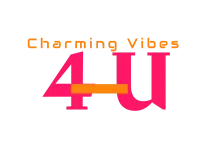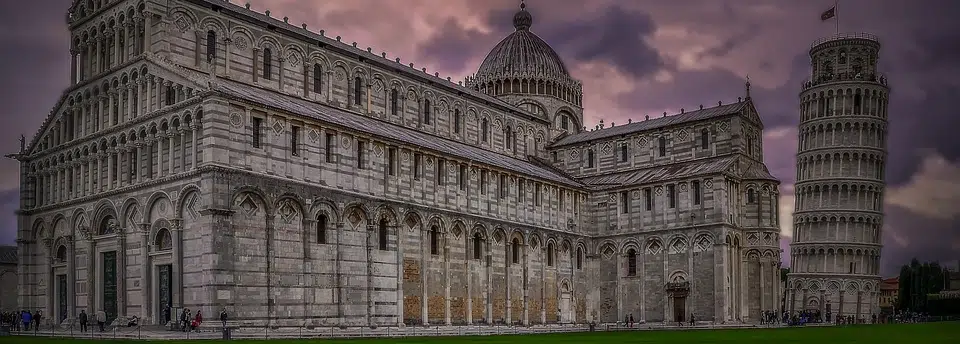This easy Italian travel phrases post will show you some basic Italian phrases you can use whenever you visit this magnificent country. We will also provide links to a good, free online Italian course that will help you immerse yourself in a language in no time.
Short introduction
Learning keywords and sentences is a good idea if you plan to visit Italy. After all, language is a big part of Italian culture, and you want to experience it all, are we right?
You do not need to speak Italian to enjoy your time in Italy. However, knowing essential Italian words or expressing simple sentences will improve your stay.
Trying to understand and speak Italian on your trip is not simply a matter of respect – although we think this is very important, too. When you talk to people in their language, they appreciate it, and experiences open up to you that would not have been possible if you had been speaking English.
So, let’s get started with the common Italian phrases and words that will be most useful to you on your travels.
Basics Italian phrases
When you visit Italy, these are the most common words and phrases that demonstrate you have made some effort to speak the local language. Learning these valid Italian words will help you talk to people during your trip.
Note: We’ve provided a phonetic pronunciation guide after the Italian translation for each word and some valuable resources at the end of this article.
- Yes – Si – See
- No – No – Noh
- Please – Per favore – Pehr fah-voh-reh
- Thank you – Grazie – Grah-tsee-eh
- You’re welcome – Prego – Preh-goh
- Cheers! (To your health) – Salute! – Sah-loo-tay
- Excuse me (for attention) – Scusi – Skooh–zee
- Excuse me (to pass by) – Permesso – Pehr-mehs-soh
- Do you speak English? – Parla Inglese? – Parh-la een-glay-zeh
- I don’t understand – Non capisco – Non-kah-pee-skoh
- I’m sorry – Mi dispiace – Mee dees-pyah-cheh
Greetings
In Italy, saying “good morning” is not simply a throwaway line. It would help to always greet people wherever you go—when entering a shop or restaurant, to hotel staff, on the bus, or at a cultural sight. It’s the expected thing to do.
Tip: In most interactions with tourism facilities, such as your hotel owner, host, ticket officer, etc., you want to use formal and polite greetings. So, Buongiorno (hello) and arrivederci (proper goodbye at the end of a stay or a meal) are the most beneficial things to learn.
- Good morning (formal) – Buon giorno – Bwohn-johr-noh
- Good afternoon (formal) – Buona sera – Bwoh-nah-seh-rah
- Good night (formal) – Buona notte – Bwoh–nah–noh–teh
- Hi / Bye (informal) – Ciao! – Chow
- Good bye (formal) – Arrivederci – Ahr-ree-veh-dehr-chee
- My name is … – Mi chiamo – Mee kyah-moh
- What is your name? – Come si chiama? – Koh-meh see kyah-mah?
- Pleased to meet you – Piacere – Pyah-Cheh-reh
- How are you? (formal) – Come sta? – Koh-meh stah?
- Good, thank you – Bene Grazie – Beh-neh Grah-tsee-eh.
Italian numbers
While you don’t need to be able to count to 100, numbers up to 12 at least (for the hours of the day) will help you a lot. After all, you need numbers at a restaurant – una pizza per favore!
- One – Uno – Oo-noh
- Two – Due – Doo-eh
- Three – Tre – Treh
- Four – Quattro – Kwah-troh
- Five – Cinque – Cheen-kweh
- Six – Sei – Say
- Seven – Sette – Seht-tey
- Eight – Otto – Oh-toh
- Nine – Nove – Noh-veh
- Ten – Dieci – Dee-EH-chee
- Eleven – Undici – Oon–dee-chee
- Twelve – Dodici – Doh-dee-chee
Time and the days of the week
Here are the basics of telling time in Italian. Furthermore, we will explain the days of the week and other valuable sentences for making reservations and plans. Italians generally use a 24-hour clock and understand the 12-hour clock if you specify morning and afternoon.
In the morning – Di Mattina – Dee mah-teen-ah
In the afternoon – Di pomeriggio – Dee poh-meh-reed-joh
In the evening – Di Sera – Dee seh–rah
Noon – Mezzogiorno – Mehd-dzoh-johr-noh
At what time? – A che ora? – Ah kay oar-ah?
Nine o’clock in the morning – Le nove – Le noh-vay
Eight o’clock in the evening – Le otto di sera / – Le ot-to dee seh-rah
Monday – Lunedì – Loo-neh-dee
Tuesday – Martedì – Mahr-teh-dee
Wednesday – Mercoledì – Mehr-koh-leh-dee
Thursday – Giovedì – Joh-veh-dee
Friday – Venerdì – Veh-nehr-dee
Saturday – Sabato – Sah-bah-toh
Sunday – Domenica – Doh-meh-nee-kah
Today – Oggi – Ohd-jee
Yesterday – Ieri – Yeh-ree
Tomorrow – Domani – Doh-mah-nee
In the restaurant
Every Italy trip includes a visit to restaurants. Furthermore, we’re sure ordering a gelato or two is on your list. Let’s get you ready with some essential Italian phrases you need for ordering food or at restaurants.
Notice: If you are hungry, check out our Rome food guide.
Can I see the menu please? – Il menu, per favore – Eel men-oo, pehr fah-voh-reh
What do you recommend? – Che cosa ci consiglia? – Kay koh-za chee kon-seel-ya?
I’m allergic to… – Sono allergica/o a... – Son-oh ah-ler-gee-koh / kah ah
Gluten / Dairy / Fish – Glutine / Lattecini / Pesce – Gloo-teen-ay / Lah-tay-cheen-ee / Pesh-ay
House wine – Vino della casa – Vee-noh del-lah car-sah
Red / white wine – Vino rosso / bianco – Vee–noh ross-oh / bee-ahn-koh
A glass / bottle – Una bicchiere / una bottiglia – OO-nah beek-kyeh-reh / boht-tee-lyah
Appetizer – Antipasto – Ahn-tee-pah-stoh
First course – Primo – Pree-moh
Second course – Secondo – Sek-kon-doh
Dessert – Dolci – Doll-chee
Two flavors please – Due gusti, per favore – Doo-eh goo-stee, pehr fah-voh-reh
Where’s the bathroom? – Dov’è il bagno? – Doh-veh eel bahn-yoh?
The check (bill) please – Il conto, per favore – Eel kon-toh, pehr fah-voh-reh
Can I pay by card? – Posso pagare con la carta? – Pohs-soh pah-gah-reh kon la cahr-tah?
Asking for directions
These helpful Italian words will be valid if you get lost or need help with directions.
Where is… ? – Dov’è…? – Doh-veh … ?
Entrance – Entrata – En-trah-tah
Exit – Uscita – Ooh-shee-tah
Left – Sinistra – See–nee-stra
Right – Destra – Deh-stra
Right – Uno studente – Ooh-noh stoo-den-teh
Straight ahead – Dritto – Dree-toh
Forward – Avanti – Ah-vahn-tee
Back – Dietro – Dee-et-roh
Getting around
Most visitors will need to take a train, bus, or taxi. The following phrases will be helpful in these situations.
Where is the train station? – Dov’è la stazione? – Doh-veh lah stah-tzee-oh-neh?
Where is the bus stop? – Dov’è la fermata – Doh-veh lah fur-mah-tah?
One / two ticket/s – Un / due biglietto/i – Oon beel-yet-toh / tee
One way – Andata – Ahn–dah-tah
Return – Ritorno – Ree-torn-oh
What platform for Rome? – Da quale binario per Roma? – Dah kwah-lay bin-ah-rio pehr Roh-mah?
Newstand (for bus tickets) – Tabacchi – Tah-back-kee
Shopping time
Imagine that you are visiting Milan, the world’s fashion capital. And it’s time to go shopping! In that case, you must know the following key phrases.
I would like… – Vorrei… – Vor-ray…
How much is this? – Quanto costa questo? – Kwahn-toh kohs-tah kwehs-toh??
OK I’ll take it – Va bene, lo prendo – Vah beh-neh, loh prehn-doh
I don’t want it – Non lo voglio – Nohn loh voh-lyoh
Can you ship to…? – Quanto costa questo? – Kwahn-toh kohs-tah kwehs-toh??
Seeking help
We hope you never need to use these phrases, but it’s a good idea to know them “just in case.”
Help! – Aiuto! – Ay-oo-toh!
I need a doctor – Ho bisogno di un dottore – Ho biz-ohn-nyo dee oon dot-tor-reh
Call the police – Chiama la polizia – Kee-ya-ma la po-lee-zee-ah
Look out! – Attento! – At–ten-toh
Go away! – Vai via! – Vy vee-ah!
Useful free-online-courses
If you want to learn some Easy Italian travel phrases, we recommend taking the following courses: Passione Italiana and Impara l’Italiano con Italiano Automatico. In both classes, you will learn the language in so-called natural ways, which are pretty simple and do not stress grammar.
Video about the Italian words and phrases anyone should know. You will be surprised how much you can learn without translating each word into English.
Easy Italian travel phrases – final thoughts
You do not need to speak Italian to enjoy your time in Italy. Fortunately for many of us, this isn’t difficult because Italian is a beautiful melodic language. At least, that’s how we think. What about you?
Take a look at
Photo credits:
Featured photo:@ItalyMagazine




Comments are closed.